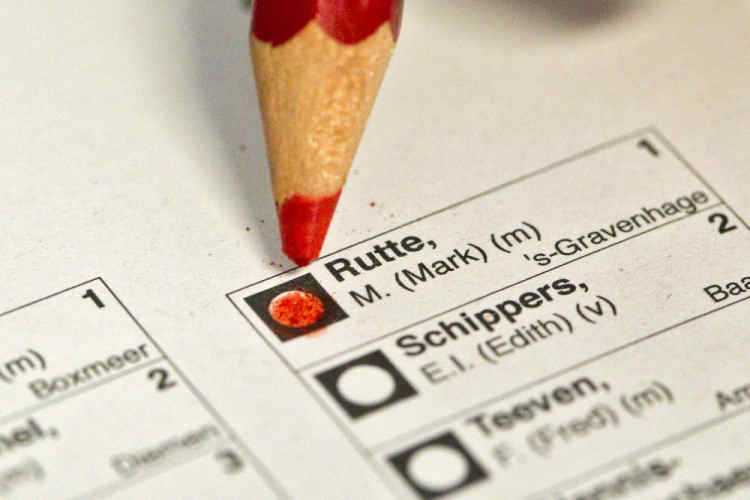News of: Thursday, March 16 2017,
The right wing populist party PVV (mainly anti-Islam) has not made the massive gain it hoped for, in yesterday's Dutch parliament elections. The VVD (conservative liberal) becomes the biggest party.
Due to the unexpected outcomes of the Brexit referendum and the victory of Donald Trump in the US, it was widely feared the right wing, anti-EU populists could win with a land slide, despite the polls indicating otherwise. To the relief of many politicians in other countries, this did not happen.
The last 4 years, the VVD was in a coaltion government with the PvdA (social democrats). Where the VVD lost 8 seats, compared to the 2012 elections, the social democrats lost a stunning 29 seats, going back from 38 to 9 seats.
The outcome of the elections also means a further fragmentation of the political landscape. The number of parties represented in parliament went from 11 to 13. This is based on 90-100% of the votes counted.
On the basis of the latest counts, the distribution of the 150 seats is as follows:
VVD (liberal/conservatives) - 33
PVV (anti-Islam/ EU) - 20
CDA (christian democrats) - 19
D66 (progressive liberal) - 19
Groen Links (green left wing) - 14
SP (socialist party) - 14
PvdA (social democrats) - 9
ChristenUnie (left wing christian) - 5
Party voor de Dieren (animal rights party) - 5
50Plus (elderly people) - 4
SGP (fundamentalist christian) 3
Denk (Turkish/Moroccan immigrants) - 3
FvD (anti EU/immigration) - 2
The fragmentation means the negotiations for a new coalition government will not become easy. A minimum of 4 parties will be needed to form a government that is supported by a majority in parliament. The VVD, being the biggest party, will take the lead in the talks. These negotiations can take many months.
The turnout of the elections was 80%.

Elections in the Netherlands